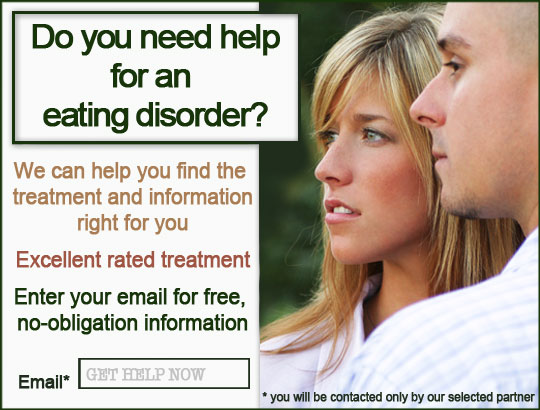What are eating disorders?
According to leading eating disorder charity BEAT, eating disorders affect around 1.6 million people in the UK. Figures from national mental health charity Mind also suggest that around one woman in twenty will have eating habits which cause concern, while the Royal College of Psychiatrists believe that 1 in 150 fifteen year old girls and 1 in 1000 young men will suffer from Anorexia.
 However, it is important to remember that support is available and with the right treatment people can recover from eating disorders and live a full and healthy life.
However, it is important to remember that support is available and with the right treatment people can recover from eating disorders and live a full and healthy life.
Types of eating disorder
There are broadly four types of eating disorders.
- Anorexia Nervosa
- Bulimia Nervosa
- Binge Eating Disorder
- EDNOS or Eating Disorder Not Otherwise Specified
People most likely to suffer from eating disorders
The Royal College of Psychiatrists’ state that girls are ten times more likely than boys to suffer from an eating disorder and although eating disorders most commonly develop in adolescence they can affect both younger children and older adults. In the Trust’s Eating Disorder Service, we certainly have more female patients than male and although we are an adult service (taking patients from the age of 16) many who are referred to the service are not the stereotypical picture of an underweight adolescent girl. Patients are typically aged 18-40 although eating disorders can affect people across all ages.
Causes of eating disorders
It is unlikely that there will be a single reason why someone has developed an eating disorder and it is more likely to be a combination of factors. These can include any of the following, although this list is not exhaustive by any means:
- Depression/low-self esteem
- Peer/social pressure
- Control
- Family difficulties
- Emotional/psychological distress
- Biological factors
Eating disorders are serious mental illnesses that affect a large number of people and can have serious consequences. They often develop in adolescence and do not have a single cause. Consistent with this picture is the fact that they have a high incident of “co-morbidity”, which is when there are other psychiatric or psychological problems present. These can include depression, anxiety disorder or personality disorder.
Useful Reading
Anorexia Nervosa: a survival guide for families, friends and suffers by Janet Treasure. Published by Brunner-Routledge
Buy this and other useful books here.
With thanks to The Manchester Mental Health and Social Care Trust for writing this article for Uncovered magazine issue 3.
For more information on eating disorders please also see:
- Eating Disorders - Types of Eating Disorder
- Eating Disorders - Treatment
- Eating Disorders - Caring for Someone with Eating Disorders






